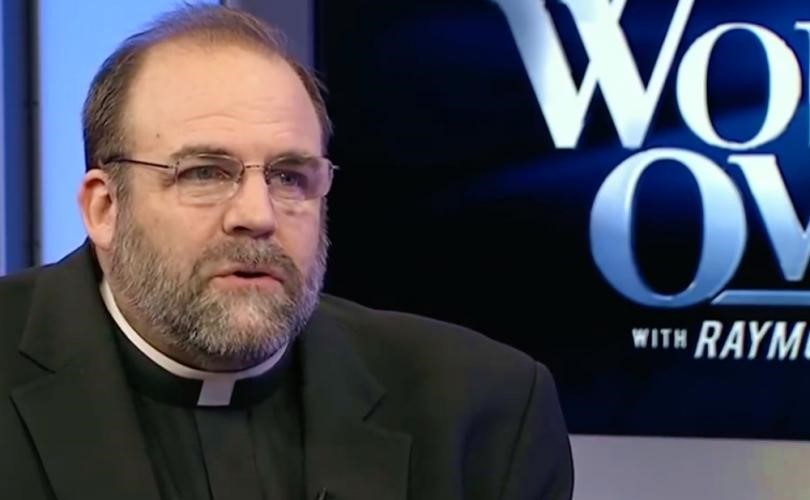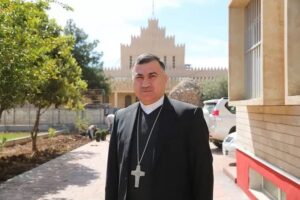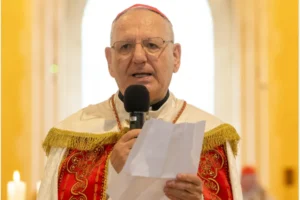
Dorothy Cummings McLean
September 11, 2019 (LifeSiteNews) – A widely-recognized and respected American priest has responded to Pope Francis’ recent remarks on “young, rigid priests,” saying in a social media post addressed to the Pope that he must “honestly and painfully say that I am wearied from being scorned and demonized by you.”
On his way to Mozambique, the Argentinian pontiff stated that he considered it to be an honor to be attacked by Americans. In a prepared speech to the bishops of Mozambique on September 7, he warned them against “young, rigid priests.” On his return to Rome yesterday, Pope Francis again mentioned “rigidity,” saying that “we have many, many schools of rigidity” in the Church. The pontiff also said that he does not “fear schisms” and said that there had been many schisms in the Church.
While advising the bishops of Mozambique on choosing men for ministry, Pope Francis said:
“I would like to emphasize an attitude that I do not like, because it does not come from God: rigidity. Today it is fashionable, I do not know about here, but in other parts of the world it is fashionable, to find rigid people. Young, rigid priests, who want to save with rigidity, perhaps, I don’t know, but they take this attitude of rigidity and sometimes – excuse me – from the museum. They are afraid of everything, they are rigid. Be careful, and know that under any rigidity there are serious problems.”
In response to Pope Francis’s remarks about Americans and “rigid young priests,” Monsignor Charles Pope wrote on social media:
Santo Padre, I’m not feeling the love here, I don’t feel accompanied by you. Make room in your heart for me and others like me. I am not a young priest, but I know you don’t like my type of priesthood. Further I am an American and this mere fact seems to also make me troublesome in your eyes. I am not afraid of everything a you state, but I do have concerns for the ambiguity of some of your teachings and severity of some of your actions. Yet when we, your less favored sons, ask you questions you will not answer or clarify. In all this I am still your son and share the priesthood of Jesus with you. I await the solicitude and gentle care from you that you say I, and others like me, lack. Meanwhile I must honestly and painfully say that I am wearied from being scorned and demonized by you.
Respectfully,
Carlo.
British blogger-priest Fr. Raymond Blake circulated the cri-de-coeur on Twitter, adding, “I don’t see this continuous criticism from our beloved Holy Father as Christlike, I find it painful and destructive of faith and unity, and contrary to the action of the Holy Spirit’s action in the Church.”
Mark Lambert, an American Catholic lay blogger and father of five, posted Msgr. Pope’s message on his blog. He believes millions of Catholics feel the same sense of being abandoned.
“As a son abandoned by a father who chose immorality over paternal duties, I recognise the tone of these comments,” Lambert wrote. “They are as [by] a wounded child to his father, trying to understand his abandonment.”
“I sense this is a feeling millions of Catholics are feeling as this papacy rages on, seemingly completely unstoppable. Pope Francis’ rampage appears all powerful, with no one even interested in commenting.”
Lambert sees this expression of power as a “stark contrast” with the helplessness of Pope Benedict XVI, who reportedly told Bishop Fellay of the Society of St. Pius X that his papal “authority ends at that door.”
‘A fair criticism is always well received, at least by me’
Lambert also joined a chorus of Catholic voices disturbed that Pope Francis claimed he welcomes criticism and also that he would speak glibly about a schism in the Church.
Following up on the furor caused by the pontiff’s off-the-cuff remarks about Americans, Jason Horowitz of The New York Times asked Pope Francis if he is “afraid of a schism in the American Church.”
“On the plane to Maputo, you acknowledged being under attack by a sector of the American Church,” Horowitz said.
“Evidently, there are strong criticisms, and there are even some cardinals and bishops, TV
, Catholics, American web sites – many criticisms. Even some very close allies have spoken of a plot against you, some of your allies in the Italian curia,” the NYT reporter continued.
“Is there something these critics don’t understand about your pontificate, or is there something that you have learned from the criticisms [coming from] the United States? Another thing, are you afraid of a schism in the American Church and if yes, is there something that you could do, dialogue to help avoid it?”
In response, the pontiff said that he sees the value of criticism and that he likes it when people criticize him directly. He thinks that to write articles critiquing him and asking for a response is fair and “love for the Church,” but “to criticize without wanting to hear the response and without dialogue is not wanting the good of the Church.”
“It is to go backward to a fixed idea, to change the pope, to change the style, to create schism, this is clear, no?” he continued.
“A fair criticism is always well received, at least by me.”
In an editorial entitled “The passive-aggressive papacy continues – and the Synod approaches,” Carl Olson of Catholic World Report pointed out the obvious: Pope Francis still has not responded to criticism regarding Amoris laetitia.
“… There have been respectful and reasonable concerns—some expressed in critical but not outrageous ways—that Francis has pointedly ignored,” Olson wrote.
“The famous dubia submitted by four cardinals (two of whom [are] now deceased) is an obvious example. The dubia were submitted in writing, the cardinals asked respectfully for a response, and they wanted an answer,” he continued.
“None came, and none will, I’m convinced. As I noted in June 2017: ‘I’ll be shocked—and I don’t use that term lightly—if Francis agrees to meet with the four cardinals, or if he formally responds to the dubia. I believe Francis is content to create the mess that is currently spreading throughout the Church, and even, at times, to encourage it even more by way of dubious assertions.’”
Olson also cast doubt on the assertion that Francis does mull over good criticism in a “mature, pastoral manner.”
“… While Francis makes distinctions between good and bad critics, he and his closest collaborators (not to mention his defenders on Twitter, who are equal parts passive and aggressive) rarely, if ever, really address or consider good criticism in a mature, pastoral manner,” Olson wrote.
“In many cases they misrepresent it or attack those who put it forward in good faith,” he continued.
“Put another way, Francis and company make it quite clear, in the end, that any and all criticism is motivated by some irrational, ideological, political, and unCatholic hatred of Francis. They would rather stonewall, deflect, and even insult rather than actually dialogue. If I’ve seen it once, I’ve seen it several dozen times.”
However, Pope Francis’ English biographer, Austen Ivereigh, thought the pontiff had described his supposedly “well financed” American critics very well.
“Francis’s description of those who dispense criticism via ‘arsenic pills’ & of those who ‘throw a stone and then hide their hands’ is a perfect description of the well financed US opposition,” Ivereigh wrote on Twitter.
‘I don’t fear schisms’
Regarding threats to Church unity, Pope Francis told the NYT there have been many schisms throughout Church history, including the “best known break of [Archbishop] Lefebvre.”
“There is always schismatic action in the Church, always, no? It is one of the actions that the Lord always leaves to human freedom,” he continued.
“I don’t fear schisms, I pray they don’t exist because there’s the spiritual health of many people [to consider], right? [I pray] there will be dialogue, that there will be correction if there is some mistake, but the path of schism is not Christian.”
Mark Lambert was horrified by Francis’ tone.
“It seems frankly inconceivable to me that any pope would speak of one of the very worst things to happen to the Church in the way this Pope is speaking of possible schism,” the blogger said.
Lambert stated that expressing no fear of schism was “the very antithesis to” Francis’ role as Pope for, as Lumen Gentium states, the Bishop of Rome “is the perpetual and visible source and foundation of the unity both of the bishops and of the whole company of the faithful” (LG 23, CCC 882).
Lambert recalled that in 2016, the pontiff was reported as having said, “It is not to be excluded that I will enter history as the one who split the Catholic Church,” and wondered if Francis sees schism “as some sort of plan for his papacy.”
Pope Francis’ remarks about not fearing a schism were widely reported in the worldwide Catholic and mainstream media.
https://www.lifesitenews.com/news/american-priest-to-pope-im-wearied-from-being-scorned-and-demonized-by-you















